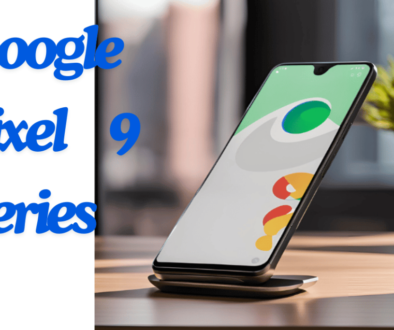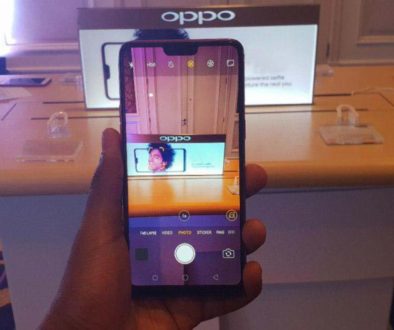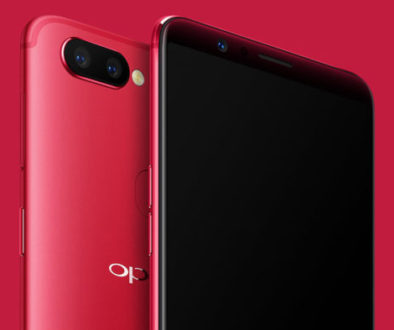The introduction of 5G technology is transforming the way we use smartphones, offering significant advancements in speed, connectivity, and overall performance. As 5G continues to roll out globally, it’s essential to understand how it enhances the smartphone experience.
Here’s a breakdown of the key areas where 5G is making a massive impact:
1. Blazing Fast Internet Speeds:
One of the most significant benefits of 5G is its incredible speed. 5G networks can deliver download speeds up to 100 times faster than 4G.
This means that tasks like streaming high-definition videos, downloading large files, and browsing the web are faster and smoother than ever before. With speeds reaching up to 10 Gbps, users can enjoy near-instantaneous data transfer, making smartphone use more efficient.
2. Reduced Latency for Real-Time Applications:
Latency refers to the delay before data begins transferring after a request. 5G drastically reduces latency compared to 4G, with as little as 1 millisecond of delay.
This improvement is particularly beneficial for real-time applications, such as online gaming, video conferencing, and augmented reality (AR) or virtual reality (VR) experiences, where minimal delays are crucial for a seamless experience.
3. Enhanced Streaming Quality:
With 5G, high-quality streaming becomes the norm. Users can stream 4K or even 8K videos without buffering. Services like Netflix, YouTube, and other streaming platforms can deliver high-resolution content on the go, enhancing the mobile entertainment experience. 5G also enables more immersive experiences, such as live sports in ultra-HD and real-time interactions during live events
4. Improved Gaming Experience:
Mobile gaming benefits significantly from 5G. The high speed and low latency allow for smoother, more responsive gameplay, especially in multiplayer or cloud-based games.
Gamers can expect near-console quality experiences with reduced lag, which is critical in fast-paced, competitive games.
Cloud gaming services like Google Stadia and Xbox Cloud Gaming are also becoming more viable on mobile devices due to the power of 5G.
5. Boosting Augmented and Virtual Reality:
5G is unlocking the full potential of augmented reality (AR) and virtual reality (VR) on smartphones. These experiences require substantial data transfer and low latency, which 5G provides.
Whether it’s AR-based navigation, interactive shopping experiences, or VR gaming, users can now engage in real-time, lifelike experiences on their smartphones without interruptions or performance issues.
6. Empowering IoT Connectivity:
Smartphones act as hubs for other connected devices in the Internet of Things (IoT) ecosystem. With 5G, multiple IoT devices can be connected simultaneously without slowing down the network.
This enhances the experience for users managing smart home devices, wearable tech, and other connected appliances through their smartphones. The higher bandwidth and reduced congestion on 5G networks ensure that all these devices can operate smoothly at the same time.
7. Seamless Cloud Integration:
As more services move to the cloud, 5G plays a crucial role in providing seamless access. Smartphones with 5G can quickly upload and download files, stream content, and run applications directly from the cloud without noticeable delays. This opens up possibilities for cloud-based apps and services that were previously hindered by slower network speeds.
8. Next-Generation Mobile Applications:
With 5G, developers can create more complex and powerful mobile applications. These apps can leverage the increased bandwidth and lower latency to offer richer features and functionalities. For instance, AI-driven apps and cloud-based software will run more smoothly on smartphones, pushing the boundaries of what mobile devices can achieve.
9. Battery Life and Efficiency:
Interestingly, 5G can also improve battery efficiency on smartphones. As the technology evolves, 5G modems are becoming more power-efficient, meaning that tasks requiring data transfer are completed faster, consuming less battery.
While initial 5G smartphones had issues with battery drain, newer models are being designed to better optimize energy use, allowing for longer usage times between charges.
10. Business and Productivity Enhancement:
For professionals, 5G enables faster file transfers, seamless video conferencing, and better collaboration tools.
It makes remote working more efficient, with cloud-based business tools becoming more responsive and reliable. This makes the smartphone a more powerful tool for business use, enhancing productivity and communication.
Conclusion:
5G is not just about faster download speeds; it is revolutionizing how we interact with smartphones on multiple levels. From real-time applications like gaming and AR to seamless streaming and better business tools, 5G offers a world of new possibilities for smartphone users. As 5G networks expand, we can expect even more innovative developments, further pushing the boundaries of what smartphones can do.
FAQs:
How much faster is 5G compared to 4G?
- 5G is up to 100 times faster than 4G, with speeds reaching up to 10 Gbps.
Will 5G drain my smartphone battery faster?
- Initially, 5G modems were power-hungry, but newer devices are optimized for better battery efficiency.
Can I use 5G everywhere now?
- 5G is still being rolled out globally. Availability depends on your region and carrier.
How does 5G improve gaming on smartphones?
- 5G’s low latency and high speed make mobile gaming smoother and more responsive, reducing lag in real-time games.
Will 5G make cloud storage faster?
- Yes, 5G enables faster and more reliable access to cloud storage, allowing quicker uploads and downloads.
What industries benefit the most from 5G-enabled smartphones?
- Industries like healthcare, gaming, entertainment, and business communications benefit significantly from 5G.
How does 5G improve video streaming?
- 5G’s higher bandwidth allows for smooth streaming of high-definition videos, including 4K and 8K content, with minimal buffering.
Does 5G improve smartphone security?
- While 5G improves network efficiency, smartphone security depends on additional measures like encryption and software updates.
Are there any downsides to 5G on smartphones?
- The main downside is limited availability, and early 5G smartphones had higher battery consumption, though this is improving.
Will older smartphones support 5G?
- No, only 5G-enabled smartphones can access 5G networks. Older devices will still operate on 4G or lower networks.




